September saw two high-profile metal releases from Iron Maiden and Carcass, plus a reissue of Metallica’s “Black Album,” one of the best-selling metal records in history, complete with a tribute so ill-conceived it’ll make you want to invest in oil companies to hasten our demise. But Blast Rites is more about legends in the making, the groups should have their own dubious tribute albums in about 30 years’ time. (That is, if metal still exists 30 years from now.)
Portland’s Unto Others already had a sound poised to elevate them from the underground, a melodic machine driven by both NWOBHM’s raw-hewn leads and Sisters of Mercy’s more rocking edges. Vocalist Gabriel Franco practically slips into Andrew Eldritch’s slithering charisma when he dons shades, and guitarist Sebastian Silva would be the subject of a million guitar magazine posters were this still the ‘80s. With Strength, their second record (and first as Unto Others, as their first album Mana was recorded as Idle Hands), which comes out Friday on Roadrunner, they’re as gothy and rocking as ever — yet with a harder resolve and an aim to be classic, not just look the part.
Here, they embrace thrash more on tracks like “Why” and “Heroin,” reach for huge melodies on “Downtown” and “Just a Matter of Time” without skimping on the darkness and even get a little dancey on “Instinct.” Better yet, they also transform Pat Benatar’s “Hell Is for Children” into the swagger-dripping rocker it was always meant to be, the perfect antidote for hearing someone butcher “Hit Me With Your Best Shot” in a karaoke bar for the umpteenth time. Unto Others have a unified sound, embracing that there is no one right way to rock — a contradiction, were it not for the weariness and longing that are too real. For a metal metal album that will define 2021, look no further.
Read our chat with Franco below.
This interview has been edited for length.
SPIN: Strength has much of the Unto Others sound, but it definitely goes in some unexpected directions. How do y’all want people to be surprised by this record?
Gabriel Franco: Right off the bat, the first song’s [“Heroin”] gonna get ‘em. Anyone who’s listened to us before will not be expecting the first track. From there on, it’ll ease back into a little more comfortable territory for your average Unto Others or Idle Hands fan. For me, the songs are a bit more visceral; the lyrics are a bit more emotional, as opposed to straight-ahead storytelling kind of stuff I did on Mana. Overall, it’s just a darker, more gritty record.
Unto Others have gone through some real struggles in the past couple years, with the legal battle over the name change, guitarist Sebastian Silva dealing with immigration issues and having big support slots cancelled because of COVID. For every big step you take, there always seems to be a big step back. Did these struggles play into the record at all?
100%, but I wouldn’t call it a big step back. We’re taking our steps forward, and a wall gets placed in front of us, and we either have to climb it or go around the side or make our own way through it. But that doesn’t just apply to us — that applies to everyone’s lives. It’s just whether or not you decide you have the willpower to keep going and get yourself through that. Strength is completely a record about perseverance through struggle.
Since y’all found a distinctive sound early on, was there a conscious move to not box yourselves in with Strength?
The most encouraging thing to me is the people who try to box us in are all in disagreement. No one can come to a conclusion of who exactly we sound like. I had one guy in one of my other interviews the other day say, “You guys went for metal more and toned down the goth on this record.” Literally the next interview some guy said, “Man, you guys really upped the goth and toned down the metal on this record.” Whatever, man. I write pretty much all the music myself; everything comes authentically from what I feel like I like or dislike. You’re getting an emotional reflection of where I’m at personally at the time. That’s what this record is, and as long as I remain an individual myself — which I hope I am — the music will remain individual and we’re not gonna be pigeonholed.
What about the rockier end of goth — the Sisters thing — appeals to you?
Straight up, I’m a massive classic metal fan. [In] “Just a Matter of Time,” you can hear “Rapid Fire” from Judas Priest. I spent seven years in a retro power metal band [Spellcaster], and we went around and toured the U.S. doing that shit. During that time, we listened to a lot of fuckin’ heavy metal. It’s pretty much ingrained in my psyche at this point, and it’s gonna be pretty hard to weed that out. I’m able to listen to music from different genres and combine it in that music that I hold so close to my heart, and that’s what you get with Unto Others.
Unto Others has this dark romanticism that’s really appealing, and it comes from not being afraid of hooks. How are hooks important for what you do?
Like I said, I spent a lot of time in the underground, “true metal” kinda elitist scenes, and they always pissed me off because people did one thing and said another. There were so many bands that I met, when we were partying, they were throwing on Madonna or Lady Gaga or shit like that. So you all like this music, but you’re too scared to put it in your own songs? I’ve never understood that. Oh, that’s right, because it doesn’t fit in what’s supposed to be metal or something. I just do not subscribe to that mentality at all. I like what I fuckin’ like. Who doesn’t want a catchy chorus? You listen to Judas Priest, but you won’t write a chorus like Judas Priest? What are you talking about?
“Bad Romance” is pretty much a W.A.S.P. song. It’s fuckin’ awesome.
I’ve said that particularly about that genre of pop from that era, and even before. It’s very heavy metal, if you break it down to the core pieces of what the song is, you’ll find they’re using the same exact riffs that Iron Maiden, punk rock, and new wave all use. People go “Gabe, how do you blend goth rock and punk and heavy metal all together?” They use the same three chords, all of them. 3-5-7, C-D-E on the guitar. All you need is those chords and the attitude and you’re in business. That’s what “Bad Romance” has about it. That’s what Lady Gaga had about her; that’s why people latched on to her.
And a lot of those pop songwriting teams are Swedish. Metal is bigger over there — they know what’s up!
One of my favorite bands is Scooter, the techno band from Germany. I showed it to my buddies, and they’re like, “Turn this shit off. It sucks!” But I keep playing it, and I’ve converted them all. Now they’re all listening to it. I’m like “I’m telling you, it’s heavy metal! It’s just in a techno format.” If there’s any doubt that they have heavy metal in their blood, go watch the video for “Fire.”
With this record, I’m hearing a desire that you heard from bigger bands in the ‘80s — that want to go beyond a core metal audience, to cross over, to go to the top. Is that what you’re going for: to transcend limitations? I’m wearing a Queensrÿche Empire shirt right now. That is the prime example of a band really reaching their creative zenith. There are so many bands that would have taken [Queensrÿche’s 1983 song] “Queen of the Reich,” took the small success they had with that record and said, “Well, guys, this is what we gotta do. This is how we get popular. We gotta make ‘Queen of the Reich’ again, except better.” Queensrÿche, naw, they did Operation: Mindcrime, kept going and reached Empire. It’s such an untouchable record. I would love to get to that point in my career, where we’re writing something that’s so fucking beyond what we could do.
——
We should also give our flowers to people who deserve their due while they’re here. Finland’s Skepticism are pioneers of funeral doom, a subgenre that traffics in the slowest and gloomiest ends of doom metal. It’s a hard proposition for most people mired in metal, let alone anyone peeking their head in from the mainstream. Skepticism, however, has made some of the most beautiful doom — nay, the most beautiful metal, touching not just upon sadness, but also upon glory, flight, agony, ecstasy and a whole wealth of human experience.
Bound by earth, their omnipotent keyboard and organ, enveloping guitar, barrel-chested growl and concerto-precise, thundering drumming also feel transported for a heaven or realm we can gaze in awe at — yet never fully comprehend. Their latest album, Companion, also out Friday through Svart, is a culmination of their three-decade career, delving into the lushest, most evocative ends of their sound, also deriving in parts from classical and death metal. It’s a truly wonderful record, and Skepticism should be more widely appreciated. (I said in my June column reviewing their single “Calla” that they would appear again here, and I’m a man of my word.)
Read our interview with keyboardist Eero Pöyry.
This interview has been edited for length and clarity.
SPIN: Funeral doom is known for being slow, long and agonizing. Life is slow, long and agonizing. Is funeral doom, then, the ultimate music about life?
Eero Pöyry: That is a fresh perspective to the matter indeed! We often get asked the question about the music being depressive or sad, and I always object to that. For me the question is purely about aesthetics. For me the music we write and play — in all of its slowness and heaviness — is beautiful. I think it is fair to say that our music is like life — often heavy, often on the minor scales but with a wealth of beauty built in when you know how to look at it.
Companion leans further into grandeur, filled with a lot of sweeping movements. Is it accurate to say this is your biggest album yet, a culmination of your strengths?
I would say it is a fair summary of our journey so far, and it does bring forth our main strengths. All of the main elements of our music are present, and our expression on them has developed over the years. I would not necessarily say that they have improved as such. There is just a bit more detail and texture to them. A good way to describe it might be that we have refined our sound throughout the journey. We refer to some of the parts on Companion with the same terms as we did on the earlier albums. The so-called climax part towards the end of “The Swan and the Raven” has a feeling of being in flight to it. We have a comparable part also on Stormcrowfleet in the song “The Gallant Crow.” The more recent part simply has more harmony and interplay between the keyboards and guitar than the older one. Neither is better, but the latter has more detail to it. The emotional landscape we are creating is still exactly the same.
You also bring grandeur in your presentation, dressed to the nines and you playing with an organ mirror. How is visual aesthetic an important consideration for Skepticism?
I would say it has always been important. Somehow the music had a visual component to it even at the time when we did not play live yet. In the first decade we expressed that mainly through the album covers and the occasional band photos. Going back to live shows in 2001, we started refining how the music looks on stage as well. The mirror was there already on the first show. It is actually functional — I use it for contact with the others while the show is ongoing. The idea originates from churches where the organist has a mirror for the same purpose. The visual component of course is that I could have used a rear view mirror from a motorcycle for the same function — the gold framed large mirror has a stronger visual component to it, and it serves as a window of a kind to the world within the music. For me, it is also a tool to get more out of how the other members experience the show, to deepen my own experience.
Is “Passage” something of youthful reminiscence with its nods to death metal?
“Passage” is actually based heavily on a dream our drummer [Lasse Pelkonen] had one night. He entered a record store — like they were in the 90’s — and eventually the back room of the store. Entering the back room, he was suddenly on a stage, on the drum riser in front of a crowd. He was there spectating and playing both the drums and the guitar. The guitar riff being played was unfamiliar to him. He memorized it and the drum beat, wrote it down in the morning and explained it to the guitarist [Jani Kekarainen] later at a rehearsal. The first minutes of the song are directly from that dream. Starting from that, we wanted to create an aggressive atmosphere in the vein of the song “The Organium.” Someone said in a review of the album that the drumming sounds very hostile in the song. I think that is very accurate. To create that sort of an aggression, the guitar riffs have quite a bit of a death metal vibe to them, and the organ sound purposely leans towards that of the Lead and Aether era. For the middle part, the visual reference was to make it sound like “a chariot being driven through a thunderstorm over mountains.”
“The March of the Four” is a reminder that the organ is a huge part of Skepticism’s sound, lending weight to already really heavy music. What is the power of the organ to y’all?
For me the pipe organ was the bedrock of the sound since moving from guitar to keyboards back in 1992. In Finland we are used to hearing the pipe organ, mainly in weddings and funerals. At the moments of joy and sorrow. I also sonically liked it a lot — and unsurprisingly still do. One of the guiding thoughts back in the day was that organ music is missing the addition of distorted heavy guitars. Especially that combination has been important on many of our albums and of course the live sound. For “The March of the Four,” I went towards a more authentic acoustic pipe organ sound, rather than the sharper and more metallic sounds we have often had.
Skepticism, though being in a niche of a niche genre, has remained such a force for 30 years because you embody something universal in music: finding overwhelming beauty in even the most extreme sadness. What is music that brings you to tears, or at least invokes to you what Skepticism invokes in other people?
There is enormous beauty in the saddest of sounds and extreme delight and the heaviest melodies. As I said earlier, this music to me is beautiful. Because of that I feel empowered performing it — not sad. I have to say music seldom brings me to tears. Oftentimes music that makes me serious and thoughtful is such music that has few components going on. Minimalistic modern classical music or dark ambient, for example. That might be how our audience feels on the shows or listening to the albums as well.
——
Still want more? After all THAT?
Skourge – Hardcore Up Your Ass (Lockin’ Out)
Starting a fight is a surefire way to lose it, but Houston’s Skourge’s latest EP is an astute rebuttal to that credo. They go harder in their trade: taking Celtic Frost riffcraft and shaking off the gothic cobwebs through Texas’ particular ass-beating mutation of NYHC. Like pretty much every Texas group I write about, you need to pay attention to them starting yesterday; even I’m not sure if I’m ready for their planned full-length arriving next year.
Ozzuario – Mental Hell (Distort Discos)
Chicago’s techno metal destroyers only throb and scorch harder as things look bleaker, as their latest release proves. “Attack and Dethrone God” is the wave for the rest of the year and the rest of our limited existence.
Succumb – XXI (The Flenser)
The Bay Area continues its modern death metal dominance with Succumb’s rollicking second full-length. It’s informed by Canadian spazz-tech overload and Malignancy’s pinch harmonic abuse as much as their home region’s rhythmic finesse.
Lamp of Murmurr – Submission and Slavery (Self-released)
Unto Others aren’t the only PNW band in this column obsessed with Floodland — the latest from this Olympia black metal project amps up the goth and post-punk for their most compelling release yet.
Defacement – Defacement (I, Voidhanger)
This cover looks like something from Pissgrave’s sex doll line. The Dutch band’s music, dissonant death metal with a creeping ambient flow, will scramble your brain to the point where a phrase like “Pissgrave sex doll” flows freely.
Blazon Stone – Damnation (Stormspell)
After a brief hiatus, Sweden’s ultimate Running Wild devotees return with another album of cutting power/speed metal, rife with even more tales featuring choppy seas, damned souls, and pricey bounties.
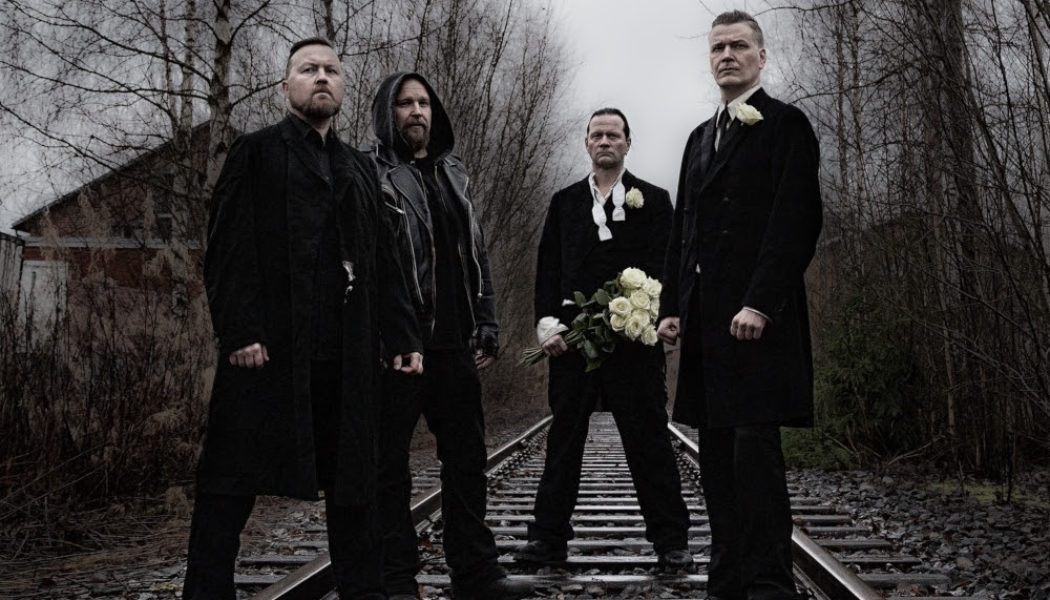
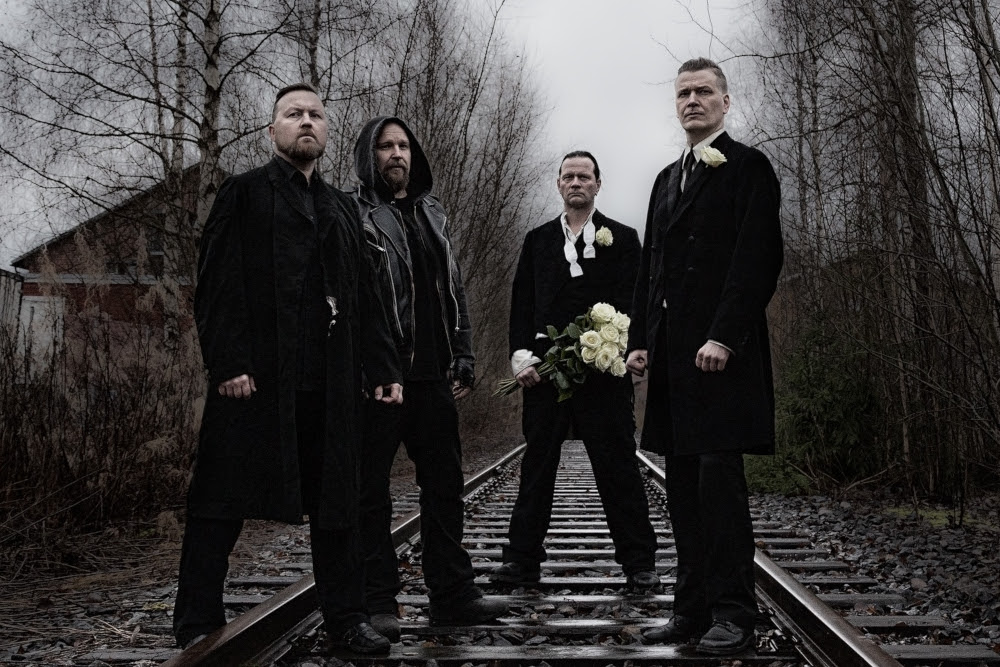


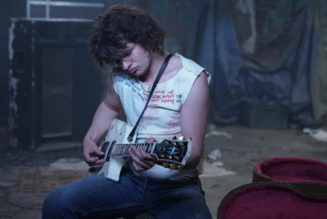

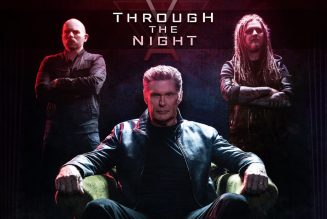
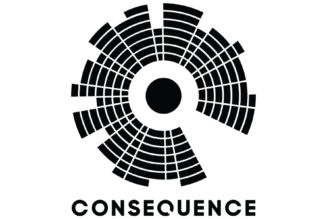

![Watch DJ Diesel’s Epic 2019 Lollapalooza Set [Exclusive]](https://www.wazupnaija.com/wp-content/uploads/2020/10/watch-dj-diesels-epic-2019-lollapalooza-set-exclusive-327x219.jpg)

